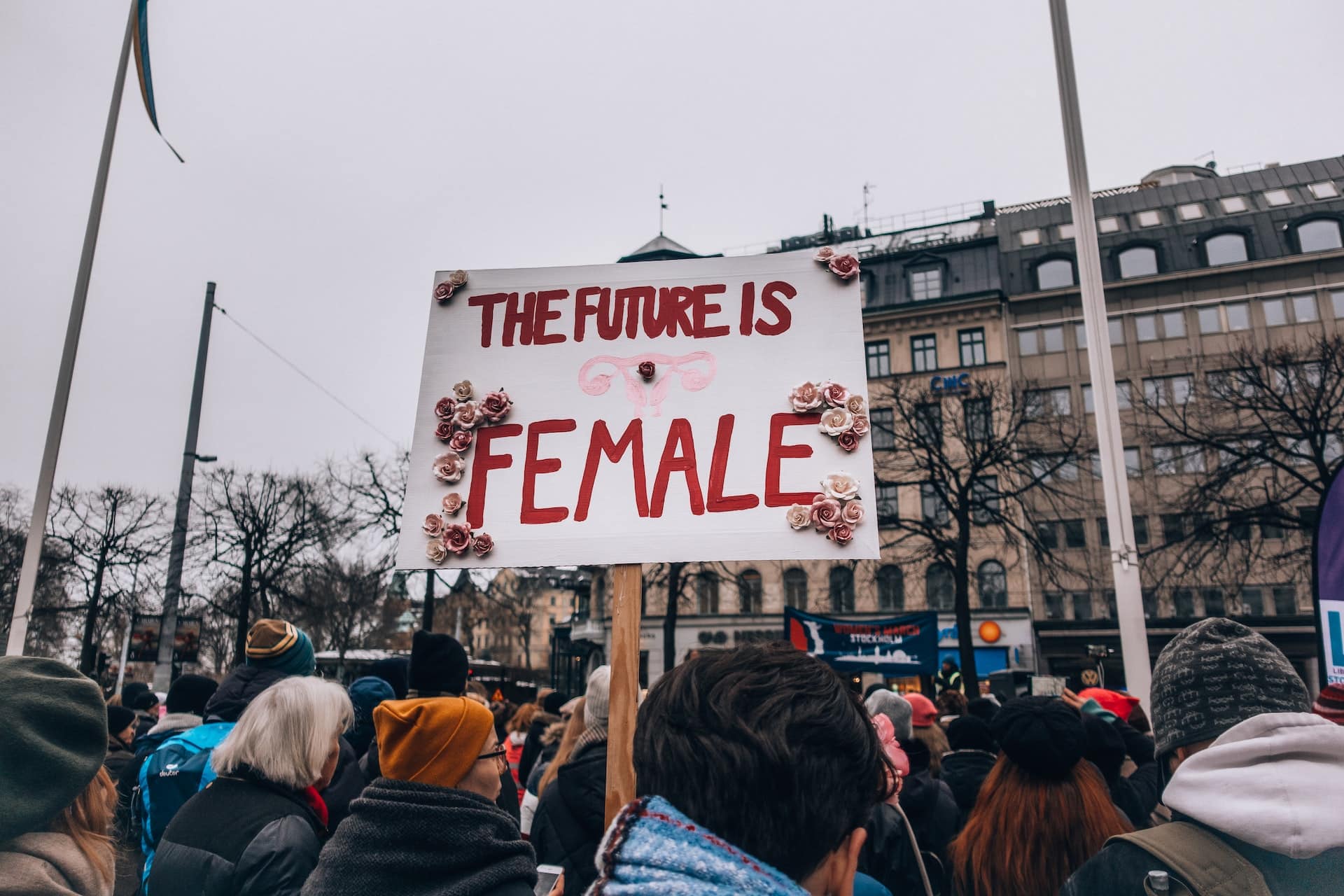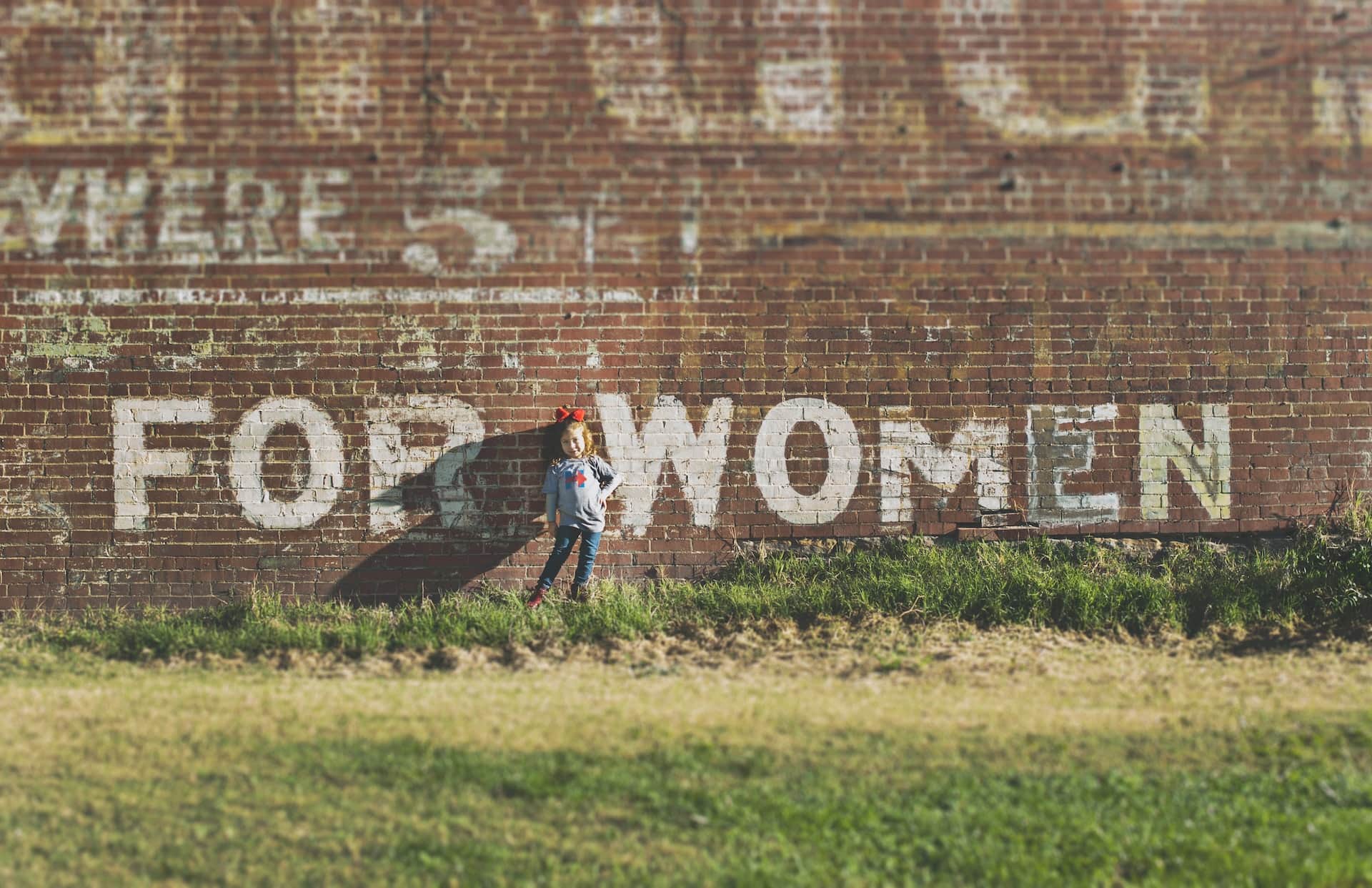
#EmbraceEquity
The theme of International Women’s Day 2023 is #EmbraceEquity. We’re honouring International Women’s Day by celebrating clients and friends of Seismic, who are already leading their industries by embracing equity everyday.
Equity vs Equality
So, what is equity in this context? It’s the means of making things fair, when everyone comes from a varying starting place.
If everyone at your office was given identical bikes to commute on, that would be equality for all. However, if they were all given bikes that fit their individual requirements that would be equity. People with long legs would be given bigger bikes, people working shifts would have lights and high-vis gear for night riding, those who have to cross terrains would have off-road tyres, etc. It can be defined as giving everyone what they need to be successful.
Last month saw the first European country, Spain, pass its Menstrual Paid Leave Law. Included in the bill are better reproductive rights and gender identity control for individuals. This has been hailed as radical progress for feminist rights and is perfectly on theme with embracing equity. It supports those with varying needs to remain healthy and continue to perform in their roles to the best of their ability.
Not all changes need to be big to make a difference, but understanding the difference between equity and equality is critical. For all people in business to feel true inclusion and belonging requires equitable action. A focus on gender equity needs to be part of every society’s DNA.
Here are some organisations we want to see celebrated for their equitable thinking. We want to share these examples to inspire businesses to consider the ease with which equity can be reached.
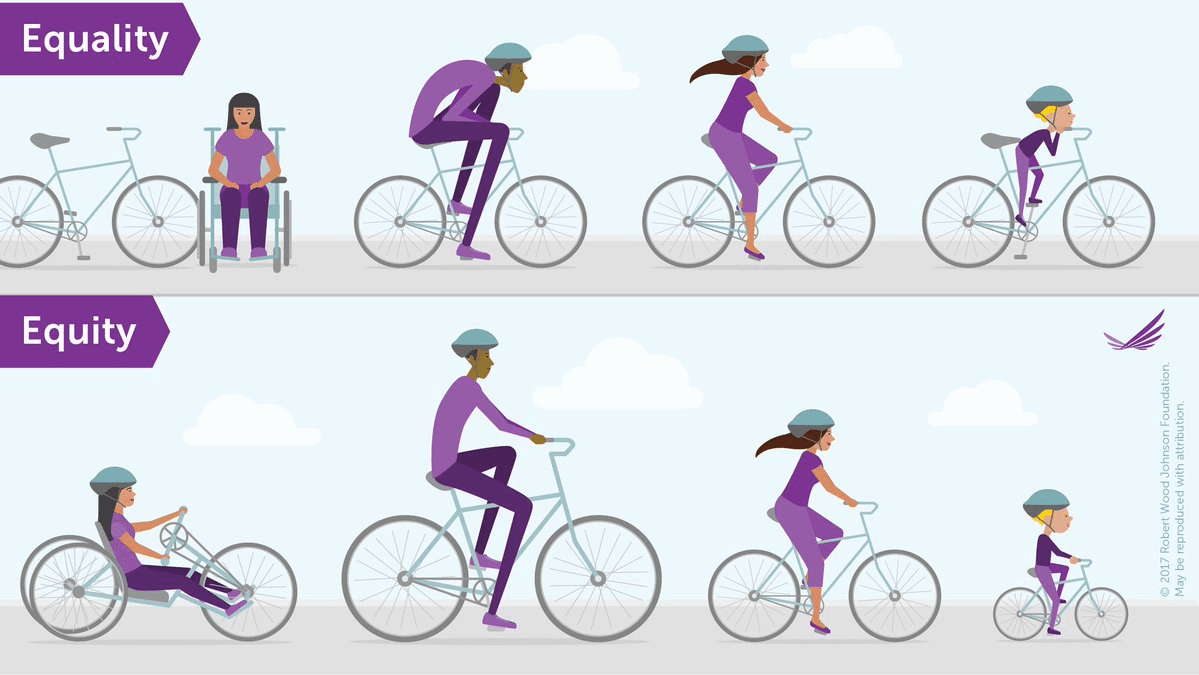
Prioritising women in leadership – JDE Peet’s
JDE Peet’s are a leader in the tea and coffee sector, the parent company to brands like L’or, Tassimo and Douwe Egberts. As a company with more than 20,000 employees, they believe leadership needs to be representative of society if it is to make informed business decisions and create a successful future. Giving everyone a seat at the table is very important to JDE Peet’s who have already reached their goal of at least 40% women in leadership positions, which reflects the overall gender diversity of their global workforce.
Their core values actually feature equity – At JDE Peet’s we aim to create a better future in which we authentically serve, reflect and embrace everyone. Diversity, Equity & Inclusion (DE&I) is embedded in our JDE Peet’s values and in all that we do.
They’ve made a commitment to stand together in their differences, which is a good philosophy for all businesses wanting to succeed in today’s diverse world.
Using business to empower all women – Avon
Avon is continually an inspiration to us as they pioneer the movement in supporting women. Empowerment is written directly into their mission – To celebrate women’s power to make a beautiful and positive impact in the world. In the UK, they have raised more than £25 million over 25 years, donating to breast cancer charities and charities helping women facing domestic abuse. Avon, who operates in over 48 countries, has been driven by their purpose for over 135 years to transform the lives of women across the world, supporting the causes that allow women to lead safe and healthy lives.
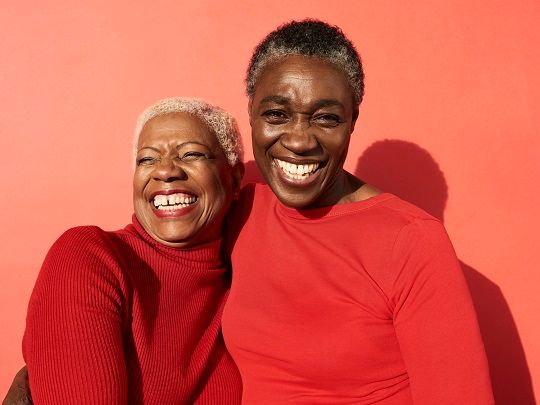
A big challenge for large multinationals can be looking at environmental responsibility, personnel management and supply chains, but Avon has worked on all of those things and more in their journey to become a B Corp.
“Across our network, we see women, their families and communities experience the benefit of this financial independence that can come from earning, upskilling, learning how to run a business and becoming part of a network. It’s part of our long history of Avon as a very purpose-orientated business to create social impact.”
– Louise Scott, Chief Scientific Officer at Avon and VP of R&D capability at Natura & Co.
Targeting equal gender representation – Tenzing
Tenzing are a private equity investor in high-growth UK and European SMEs. Having analysed their team’s make-up, Tenzing has a target of 50% of their employee base – specifically, 50% of the Investment Team within that – to be represented by women and minority groups by 2027. Investment teams are typically unrepresentative, which is why they are targeting this team. This type of awareness is to be celebrated and is ingrained within their organisation as they value collective winning – always improving through collaboration.
ESG is becoming seen as a core business function. Andy Schmidt, from Seismic, said “Please try as you might to continue with your ESG, don’t park your plans, we know this is one of the toughest business cycles, but those who can maintain momentum will do better to weather this storm.”
Supporting gender equity – The White Company
Last year, a Menopause Policy was introduced by The White Company, who produce and sell sophisticated clothing and homeware. They’ve joined others like NHS England, the Civil Service and academic institutions (to name a few), in the Menopause Workplace Pledge.
The pledge is designed to ensure women experiencing Menopausal symptoms can feel empowered to ask for adjustments to ease such symptoms without embarrassment, can carry out their daily roles in a safe working environment and have open discussions with colleagues and line managers to feel part of inclusive work culture.
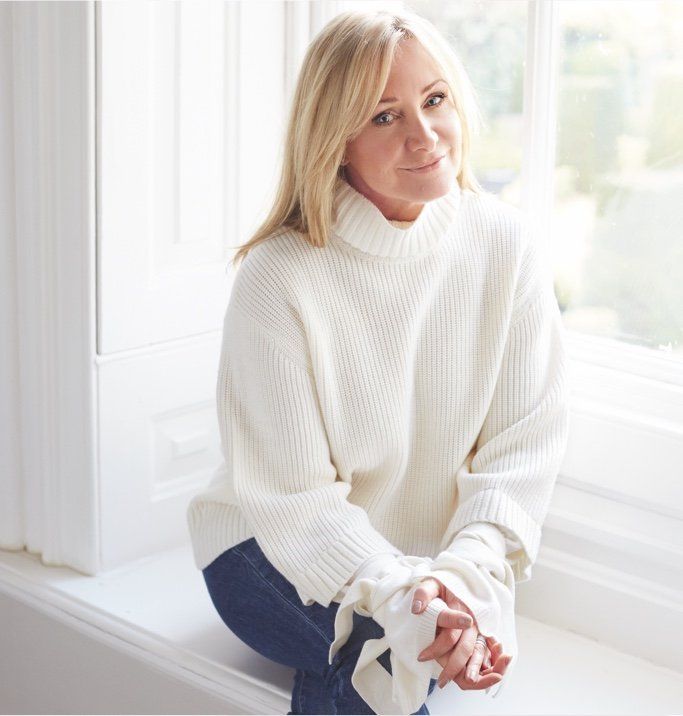
The White Company’s Menopause Policy supports those with additional needs to thrive in their careers and continue to commit to their roles and responsibilities, ensuring their businesses are unimpacted and retain great staff. An outstanding example of equity from a female-led organisation.
“[My hope for the future of women in business] is about giving women the tools, the opportunities, the support, and therefore the confidence to know they can achieve whatever anyone else can.
If they can see what other women are achieving and what these women do succeed through their organisations, they will know it is possible. There are some incredible women in business and the combination of both men and women working brilliantly together is extremely powerful.”
– Chrissie Rucker, Founder of The White Company
Investing in women-led businesses – Coutts
Coutts is one of the UK’s leading private banks and wealth managers. The Coutts Foundation are a collective committed to a mission to support sustainable approaches to tackle the causes and consequences of poverty, particularly in women and girls. They support and work with dozens of charities nationally, donating hundreds of thousands of pounds to get women and girls out of danger, and empowering them with opportunities and better futures.
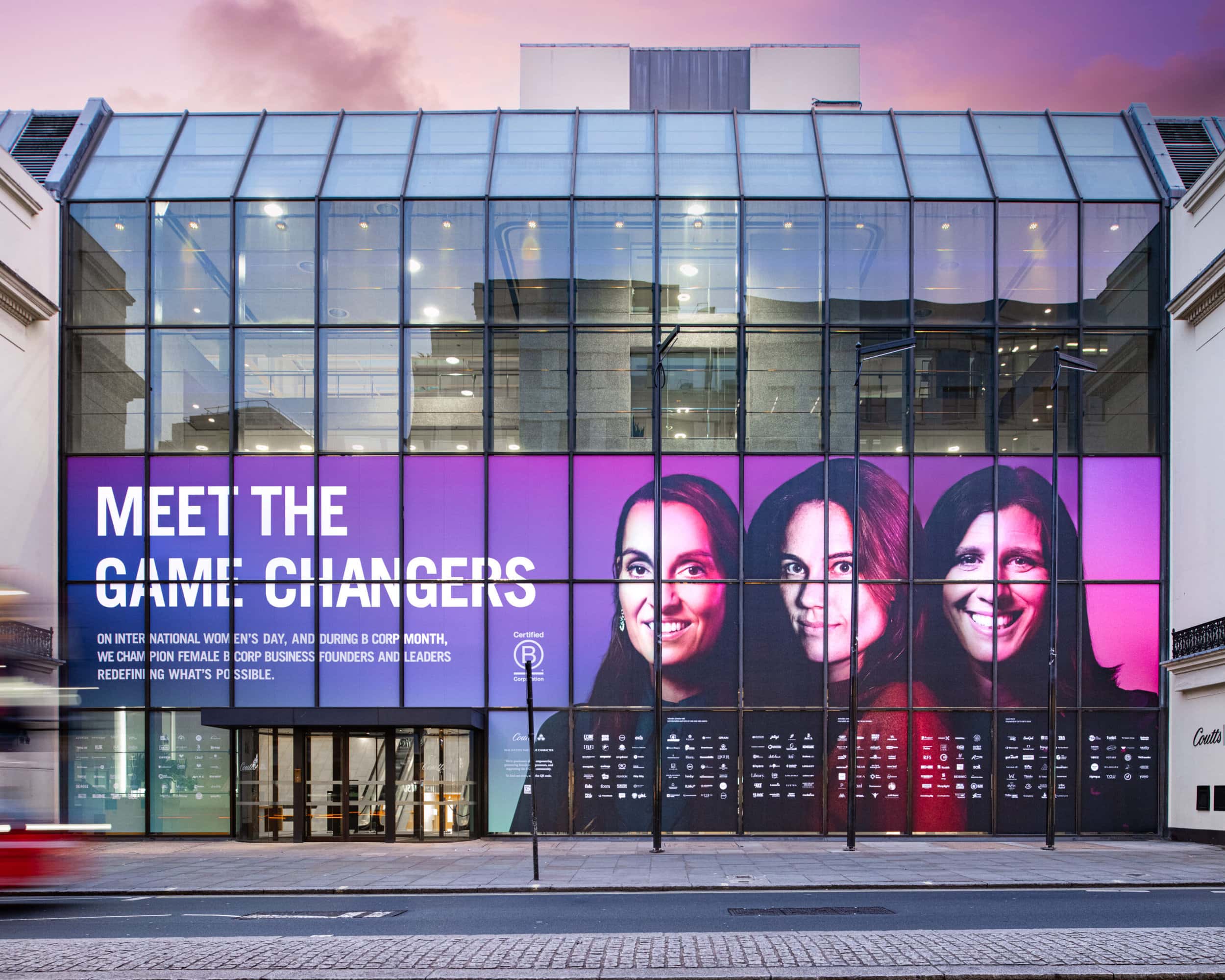
Coutts also supports female entrepreneurs through its UK Enterprise Fund (UKEF). They see a huge opportunity for the UK in supporting these enterprises. A 2019 review found that women receive less than 1% of venture capital and have an average starting capital 50% lower than men. Having identified the challenges that face women starting a new business, UKEF works to get women better access to capital and help prepare for investments and networking opportunities.
Alison Robb was instrumental in Coutts becoming a certified B Corp. You can listen to her interview as she shares some valuable insights into how companies, even large financial institutions like Coutts, can achieve B Corp status.
Going beyond International Women’s Day
If you’re celebrating International Women’s Day, think about how we can all go beyond celebrating the women on our team once a year, to celebrating the progress we have made to help women achieve gender equity in the workplace.
The goal of equity is to change systemic and structural barriers that get in the way of people’s ability to thrive. Let’s challenge our companies to celebrate this, and future International Women’s Days, by putting more initiatives and policies in place that work toward gender equity as part of an ingrained belief, with an understanding that it is a long-term and sustainable solution, and a process for addressing imbalanced systems.
